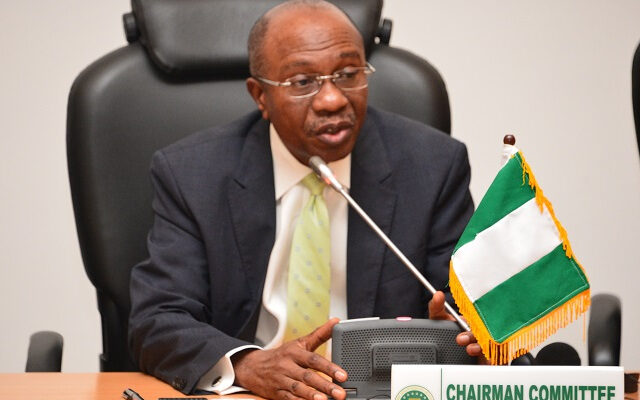
Nigerian businesses are reporting a widespread increase in operating expenses driven by the 2023 election, cash shortages, and rising inflation that has taken its toll on their operations.
The Nigerian economy is experiencing galloping inflation which arose out of a combination of higher energy prices, an increase in the money supply, and exchange rate depreciation. Some companies have also reported the impact of the cash scarcity brought about by the introduction of new naira notes as a contributing factor.
A Nairametrics review of the first quarter 2023 income statement of 24 of the NSE 30 companies reveals a total operating expense of about N441.8 billion compared to N386.6 billion for the same period in 2022. Input costs, otherwise called the cost of sale, also rose 3.9% to N1.154 trillion.
FInance costs also rose from N92.9 billion to about N118 billion as interest rates rise in reaction to higher central bank monetary policy rates. The increase also ate into margins.
Some of the companies on our list include Dangote Cement, MTN, Nestle, Lafarge, BUA Foods, BUA Cement, Unilever, and Nigeria Breweries. Others include Notore, Seplat, Total, Fidson, May & Baker, GSK, Okomu Oil, and Livestock Feed. We also reviewed the financial statements of Dangote Sugar, NASCON, Cadbury, CAPL, Julius Berger, Beta Glass, Transcorp, and UACN.
These companies cut across manufacturing, construction, FMCGs, Healthcare, Agriculture, and Conglomerates. Nairametrics considers them bellwethers for the state of the economy from the perspective of the private sector.
Operating expenses include selling and distribution expenses as well as admin and general expenses. The first quarter of 2023 was particularly poignant, especially due to a combination of economic pressures that were completely out of the control of companies.
During the quarter, Nigerians suffered through an excruciating currency crisis that affected trade nationwide. The general elections in February and March also affected the flow of business across the country as Nigerians worried about post-election violence.
In 2022, most Nigerian companies were able to address cost pressures by raising prices and pushing volumes. However, the cash shortages and election campaigns slowed down their ability to find ways to absorb the cost and retain profit margins.
Dangote Cement, Africa’s market Cement leader, reported marketing and distribution expenses of N68.7 billion, up from N60.6 billion a year earlier (N41 billion in 2021). Admin expenses also rose from N16.9 billion in the first quarter of 2022 to N18.6 billion in 2023. The company also reported significant margin drops even as revenues fell for the first time in years.
The company CEO, Arvind Pathak, cited elections as a major factor that hit their revenue growth during the quarter.
The company also added:
They also cited the naira scarcity and the increase in diesel prices as major cost drivers during the quarter.
MTN, Nigeria’s largest telecom, also cited the naira scarcity, elections, and inflation as major cost pressures during the quarter. The company’s marketing and distribution expenses rose from N21.7 billion to N36.1 billion in 2023. Admin expenses also rose from N11.3 billion to N13.5 billion in the first quarter of 2023.
MTN Nigeria MD/CEO, Karl Toriola, also commented.
MTN also reported a lower operating profit margin in the quarter under review, eking out N36 for N100 of revenue compared to N38 in the same period in 2022. They also reported a lower profit margin in the first quarter of 2023.
Another mega Nigerian company, Nigeria Breweries, also complained about cash shortages and elections as a major drawback on margins. The company reported operating expenses of N42 billion compared to N39.5 billion in the same period in 2022.
Margins also dropped across the board as the cash shortages affected the company’s chances of higher sales to absorb some of the cost pressures.
BUA Foods, the largest local food manufacturing company quoted on the stock exchange, also cited cash shortages and elections as a major challenges they had to face. The company MD/CEO Engr. Ayodele Abioye also commented.
Lafarge, another major cement maker, also released statements citing the cash shortages and elections as major factors that affected operating costs. Khaled El Dokani, the CEO of Lafarge Africa, also stated:
Lafarge’s operating expenses as a percentage of its gross profits were 52% compared to 47.6% a year earlier.
As Nigerian businesses move beyond the challenging first quarter of 2023, the outlook for the rest of the year remains uncertain. The impact of inflation, cash shortages, and election uncertainties is expected to persist, as these factors are largely beyond the control of companies.
As Nigerian businesses brace themselves for the rest of the year, the prospect of a new government coming into power can introduce more uncertainties and headwinds. A new government typically takes time to settle into its role, and during this period, policy decisions and regulations may be subject to change, creating additional challenges for businesses.
The delay in decision-making and policy implementation can cause a slowdown in economic activities, affecting the flow of business across the country. In addition, new regulations or policies may have unintended consequences for businesses, which may require time and resources to adjust to.
Businesses are adopting several measures to mitigate the impact of these challenges.
The Federal Inland Revenue Service (FIRS) has begun its recruitment exercise for experienced professionals to…
Primate Elijah Ayodele Unveils 94-Page Prophecy for 2025, Makes Striking Predictions About Nigeria’s Political and…
The Senior Special Assistant to President Bola Tinubu on Community Engagement (North Central), Abiodun Essiet,…
The Minister of Information and National Orientation, Mohammed Idris, has warned politicians against linking stampedes…
Tobi Adegboyega, founder of the Salvation Proclaimers Anointed Church (SPAC Nation), has stated that he…
The Independent Petroleum Marketers Association of Nigeria has said that petrol is going to sell…